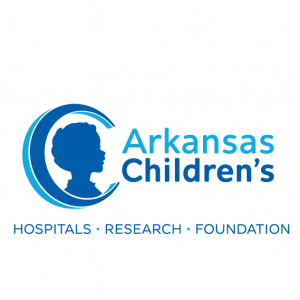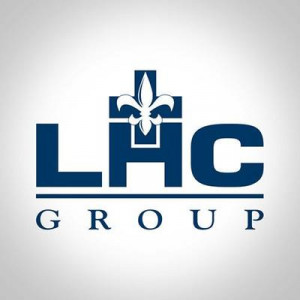Job Details
Job Location: Washington Regional Med. Ctr. - Fayetteville, AR
Position Type: Full Time
Education Level: Certified Scrub Tech
Salary Range: Undisclosed
Job Shift: Day
Job Category: Surgical Services
Description
Organization Overview, Mission, Vision, and Values
Our mission is to improve the health of people in the communities we serve through compassionate, high-quality care, prevention, and wellness education. Washington Regional Medical System is a community-owned, locally governed, non-profit health care system located in Northwest Arkansas in the heart of Fayetteville, which is consistently ranked among the Best Places to live in the country. Our 425-bed medical center has been named the #1 hospital in Arkansas for four consecutive years by U.S. News & World Report. We employ 3,400+ team members and serve the region with over 45 clinic locations, the area’s only Level II trauma center, and five Centers of Excellence - the Washington Regional J.B. Hunt Transport Services Neuroscience Institute; Washington Regional Walker Heart Institute; Washington Regional Women and Infants Center; Washington Regional Total Joint Center; and Washington Regional Pat Walker Center for Seniors.
Position Summary
The role of the Certified Surgical Technologist (CST) First Assisthas a dual reporting relationship to the Cardiovascular Operating Room Manager and the attending physician/surgeon when performing any delegated medical practice. With regard to the performance of any delegated medical practice, the CST acts under the personal supervision of the attending physician/surgeon who remains responsible for the acts of the CST in performing each delegated medical practice for which the attending physician/surgeon has determined in the exercise of their professional judgment the CST is qualified to perform and can be delegated in accordance with the Physician Delegation Regulation of the Arkansas State Medical Board. This position serves as a vital resource to the staff of the operating room suite, performing those non-delegated medical practice tasks as are within their training and supervision which are assigned by the Cardiovascular Operating Room Manager.
Essential Position Responsibilities
- General Surgical Assistant Skills:
- Demonstrate the ability to communicate the surgeon’s preferences and specific patient’s needs to the surgical team including but not limited to suture needs, specialty supplies and instrumentation, and equipment.
- Verify all implants, supplies and special procedure equipment is available and functional
- Facilitate a cooperative team atmosphere through professional communication
- Listen actively to surgeon, patient, and team to ensure safe patient-centered care
- Maintain awareness of patient monitoring and responds appropriately to potential complications
- Demonstrates Aseptic Skills:
- Monitors all actions immediately surrounding the sterile field to ensure integrity is maintained and/or corrected as appropriate
- Observe and evaluate potential causes of contamination and provide corrective action to prevent and/or treat contamination
- Participate in continuing education annually to maintain current competence and credential regarding specific skills and techniques including aseptic technique. Base decisions on research-based evidence.
- Participates in the education of allied health personnel including surgical assistant and surgical technologist students
2. Preoperative Role:
A) Demonstrates the ability to:
1) Position and drape patients as appropriate
2) Verify patient identification, allergies, NPO status, procedure, surgical site, consent, history and physical on chart
3) Inspect skin integrity for signs of infection, compromised perfusion, or other signs of potential risk
4) Ensure x-rays and applicable diagnostic exams are available for surgeon
B) Specifics regarding positioning the patient:
1) Ensure placement of monitoring devices does not interfere with access or prep
2) Ensure position of the patient provides the necessary exposure for the procedure, as well as the surgeon preference
3) Demonstrate competency in all positioning techniques for all surgeries. These competencies include, but are not limited to:
a. Prevention of nerve damage
b. Proper rotation of extremities
c. Prevention of circulatory or respiratory compromise
d. Prevention of patient sliding on bed due to tilting or Trendelenburg
e. Proper handling and placement of lines
4) Participate in the quality improvement process including but not limited to the time out process and infection control.
C) Specifics regarding surgical skin prep:
1) Ensure safe placement of tourniquet, extremity padded correctly, safety precautions followed and the accuracy of the settings for tourniquet inflation
2) Ensure skin prep will provide the necessary exposure for the surgical procedure, any possible drain sites and/or possible extension(s) of the operative incision, as well as surgeon preference
3) Demonstrate insertion of foley catheter, prevent potential complications, as indicated.
- Specifics regarding draping:
- Streamline the establishment of the sterile field
- Coordinate the draping procedure effectively correcting any breaks in aseptic technique
3) Intraoperative Care:
A) Demonstrate the ability to provide intraoperative skills such as visualization, injection of local anesthetics, securing of wound drains, and closure of skin
B) Knowledge of operating room equipment pertinent to the surgical procedure. All actions shall facilitate the progress of the surgery, as well as anticipate the preference(s) of the surgeon. This shall include, but not be limited to:
1) Hemostatic equipment and supplies, including monopolar bi-polar, harmonic scalpel, ultrasonic, medications, sponges, etc. Includes appropriate safety precautions such as placement of grounding pad, assists scrub and circulator with accuracy of counts when necessary, etc.
2) Knowledge of all laparoscopic and robotic equipment necessary for a procedure, such as: camera, light cord, removing trocars, graspers, scoops, sprayers, suction/irrigation systems, clamps, tenaculums, etc.
3) Knowledge of and use of any open procedure equipment necessary for procedures, including, tissue forceps, retractors, clamps, scissors, sponges, suction, irrigation, use of hemostatic agents, etc.
4) Any further applicable instrumentation or actions deemed necessary by the surgeon.
5) Evaluating patient positioning. This shall include a skin assessment. Any abnormal condition should be reported to the surgeon, and appropriate treatment can be carried out according to surgeon instruction.
C) Under the personal supervision of the attending surgeon, the CST may perform those delegated medical practices which the surgeon has determined the CST is qualified and properly trained to perform in accordance with the requirements of the requirements of the Physician Delegation Regulation of the Arkansas State Medical Board. In the performance of any such delegated medical practice, the CST reports to the attending surgeon who remains responsible for the acts of the CST in the performance of the delegated medical practice. The specific medical practices a CST is qualified and authorized to perform shall be identified in writing by the surgeon who will be delegating and supervising the performance of the medical practice, made a part of the CST’s personnel file, and the surgeon shall annually attest to the ongoing competency of the CST to perform all such delegated medical practices. Delegated medical practices shall follow all necessary and appropriate directives applicable to the task as may be identified by the surgeon. Such delegated medical practices may include:
1) Clamping, cauterizing via forceps, suturing, injecting, manipulating, retracting, cutting, and ligating tissue as may be appropriately delegated to a CST under applicable law, consistent with the qualifications and training of the CST and the surgeon’s professional judgment.
2) Any necessary involvement in hemostasis, including but not limited to packing, appropriate manipulation of sutures.
3) Suturing techniques, according to surgeon preference, with final closure of skin and utilizing proper manipulation of suture.
a) Using running, or interrupted suture techniques
b) Including absorbable and non-absorbable sutures, staples, adhesives, strips, etc.
4) Administration of local anesthetic.
5) Securing drainage systems.
6) Dressing, splinting, casting, and deploying immobilizers/stabilizers.
7) Performing such other medical practices that may be appropriately delegated in accordance with the Physician Delegation Regulation of the Arkansas State Medical Board.
4) Postoperative Care:
A. Demonstrate the ability to provide postoperative skills in patient care such as dressing application, patient transfer and transport, transfer of care, and monitoring for immediate complications.
B. Collaborate with others to provide continuity of care
Qualifications
- Education: Graduate of an accredited CST program
- Licensure and Certifications: Arkansas CST, Surgical First Assistant Certificate program accredited by the Commission on Accreditation of Allied Health Programs (CAAHEP), and CPR, required.
- Experience: Minimum of not less than 3 years’ experience in a CST role.
Work Environment: This position will spend 90% of time standing and/or walking while pushing, pulling, lifting, and/or carrying up to 50 lns. This position will spend 10% of time sitting while performing work in a standard office environment. This position will be exposed to communicable diseases or bodily fluids. This position will serve a culturally and linguistically diverse patient population.
Qualifications









